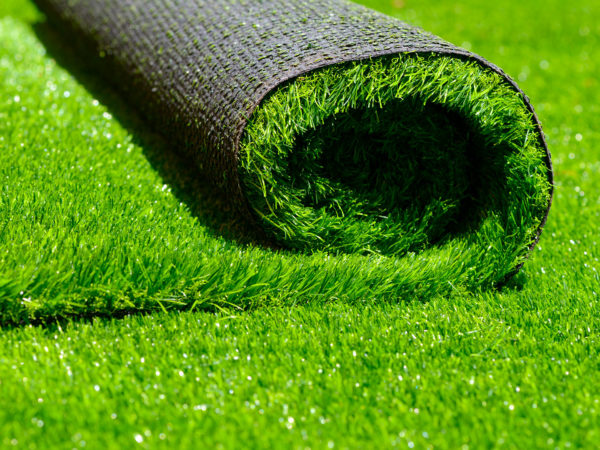Is Artificial Grass Toxic?
I’m wondering about the safety of using artificial grass for landscaping. I’ve heard the chemicals in it can be dangerous. Is this true?
Andrew Weil, M.D. | May 4, 2019

Artificial grass may seem an ideal alternative to maintaining a real lawn, which requires repeated weeding, watering and mowing, but some evidence indicates that artificial turf may be unsafe. Also, maintaining artificial grass isn’t as carefree as you might think. While you don’t have to mow it, you may have to vacuum it to clear debris, and to get rid of weeds that can grow through it you may have to use toxic herbicides.
Health concerns about synthetic turf are related to the “crumb rubber” used in the top layer of these products to provide extra padding and keep the “grass” upright. Crumb rubber is made from recycled tires and contains small amounts of polycyclic aromatic hydrocarbons (PAHs) and volatile organic compounds (VOCs) as well as heavy metals (zinc, iron, manganese and lead). These chemicals can get into your body from direct skin contact with crumb rubber or from accidental ingestion, usually as a result of putting fingers in the mouth or from not washing hands before eating after playing on artificial turf. It also could result from breathing in dust and vapors from crumb rubber while playing on artificial fields or lawns.
According to the non-profit group, Environment and Human Health, Inc., 96 chemicals were found in 14 samples of shredded used tires analyzed at Yale University. About half of these chemicals had not been tested by the government, and those that were contained 11 carcinogens and 20 compounds that can irritate skin, eyes and lungs. The organization also notes that cases of cancer among young people who have played on these fields have continued to increase – mainly lymphomas and leukemias, mostly among soccer goal keepers.
Environment and Human Health Inc. also reports that because synthetic turf fields are made out of petrochemical products, they are highly flammable and therefore many now contain flame retardants, which are also toxic. And because many students were picking up MRSA, a serious staph infection resistant to many antibiotics, from the fields, most artificial turf now contains antimicrobials, which are often toxic. The infections are favored by high temperature (up to 100 degrees F) in warm months.
While investigating this issue, I came upon another interesting criticism of artificial turf: it presents yet another barrier between children and nature. A growing body of research suggests that kids today are suffering from nature deficit disorder and need to be in touch with living greenery for optimum physical and mental health.
Overall, although natural lawns can pose health hazards if you use pesticides and herbicides on them, I would opt for a real lawn if you can. Adults too can benefit from more time spent in nature and less exposure to problematic chemicals. And weeding and mowing provide great opportunities to get a little exercise.
Andrew Weil, M.D.
Source:
J.R. Jastifer et al, “Synthetic Turf: History, Design, Maintenance, and Athlete Safety,” Sports Health, January/February 2019, doi: 10.1177/1941738118793378












